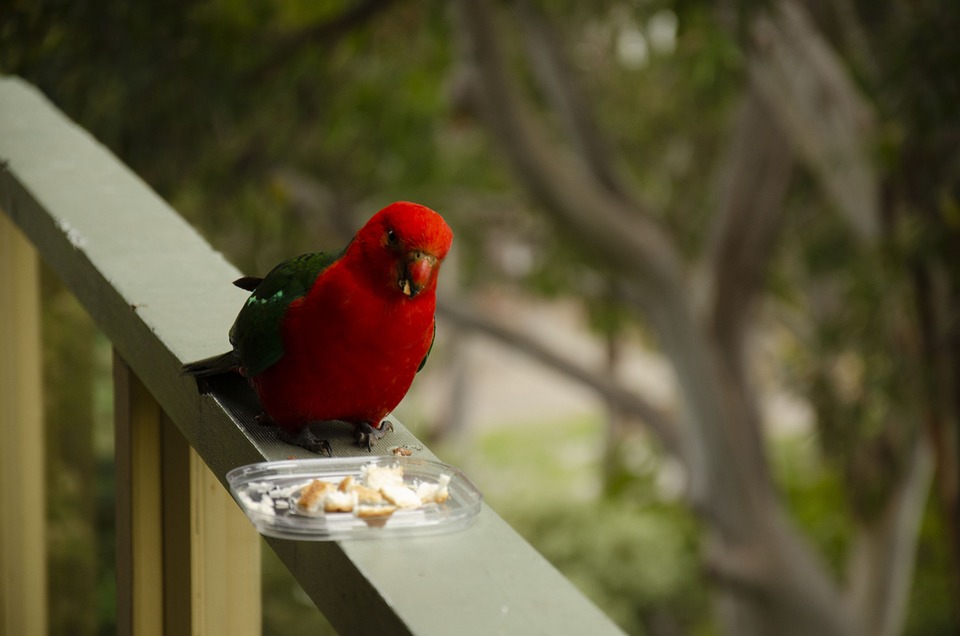Parrot behavior is a fascinating subject that can be both entertaining and challenging for parrot owners. Whether you’re a new parrot owner or have had parrots for years, understanding their behavior is crucial for creating a harmonious and enriching environment for these intelligent birds. One critical aspect of parrot behavior is their need for flock socialization. In this article, we will explore why flock socialization is important for parrots and how it can positively impact their overall well-being.
Flock socialization refers to the process of parrots interacting and forming social bonds with other parrots or birds. Parrots are highly social creatures by nature, and in the wild, they live in flocks consisting of many individuals. This social structure is vital for their survival and plays a significant role in their behavior.
So why is flock socialization important for parrots? Here are a few reasons:
1. Emotional Well-being: Parrots thrive when they have social interactions with their own kind. Being in the company of other parrots provides them with a sense of belonging and security. It helps prevent loneliness and boredom, which are common causes of behavioral issues in parrots.
2. Behavioral Development: By interacting with other parrots, parrots learn important social skills and behaviors. They observe and imitate the behaviors of their flock mates, learning how to communicate, play, and establish their place within the flock. These social skills are essential for their overall development and enable them to adapt to various situations.
3. Language and Communication Skills: Parrots are known for their ability to mimic human speech and sounds. However, their natural form of communication is through vocalizations and body language. When parrots are exposed to other parrots, they learn and develop their natural communication skills, enhancing their ability to express themselves and understand other parrots.
4. Mental Stimulation: Interacting with other parrots provides mental stimulation for parrots. They engage in activities such as playing, preening, and exploring together, which helps keep their minds active and prevents boredom. Mental stimulation is crucial for preventing behavioral problems and promoting overall mental well-being.
5. Physical Health: Flock socialization encourages physical activity and exercise. Parrots in flocks engage in flight, foraging, and other physical activities together, which helps keep them physically fit. Physical exercise is vital for maintaining a healthy weight, preventing obesity, and promoting cardiovascular health in parrots.
Now that we understand the importance of flock socialization, let’s explore some ways to facilitate it:
1. Providing Appropriate Cage Size and Toys: Parrots need enough space in their cages to move around comfortably. Additionally, providing them with a variety of toys and activities in their cages promotes mental stimulation and prevents boredom.
2. Encouraging Out-of-Cage Time: Allowing parrots to spend time outside their cages in a safe and supervised environment promotes social interaction and exploration. This can be achieved through play gyms, perches, and designated play areas.
3. Interaction with Other Parrots or Birds: If possible, consider introducing your parrot to other parrots or birds in a controlled and supervised setting. This interaction allows them to engage in natural social behaviors and learn from their flock mates.
4. Positive Reinforcement Training: Training your parrot using positive reinforcement techniques not only helps with behavioral development but also strengthens the bond between you and your parrot. It is a great way to provide mental stimulation and social interaction.
5. Enrichment Activities and Foraging Opportunities: Providing your parrot with enrichment activities, such as puzzles, foraging toys, and food puzzles, encourages mental stimulation and mimics natural foraging behaviors. These activities can be done individually or with other parrots, promoting social interaction.
In conclusion, understanding parrot behavior is essential for providing a nurturing and enriching environment for these magnificent birds. Flock socialization plays a vital role in their overall well-being, contributing to their emotional, mental, and physical health. By implementing the tips and strategies mentioned in this article, you can create a fulfilling flock socialization experience for your parrot. Remember, a socially enriched parrot is a happy parrot!









